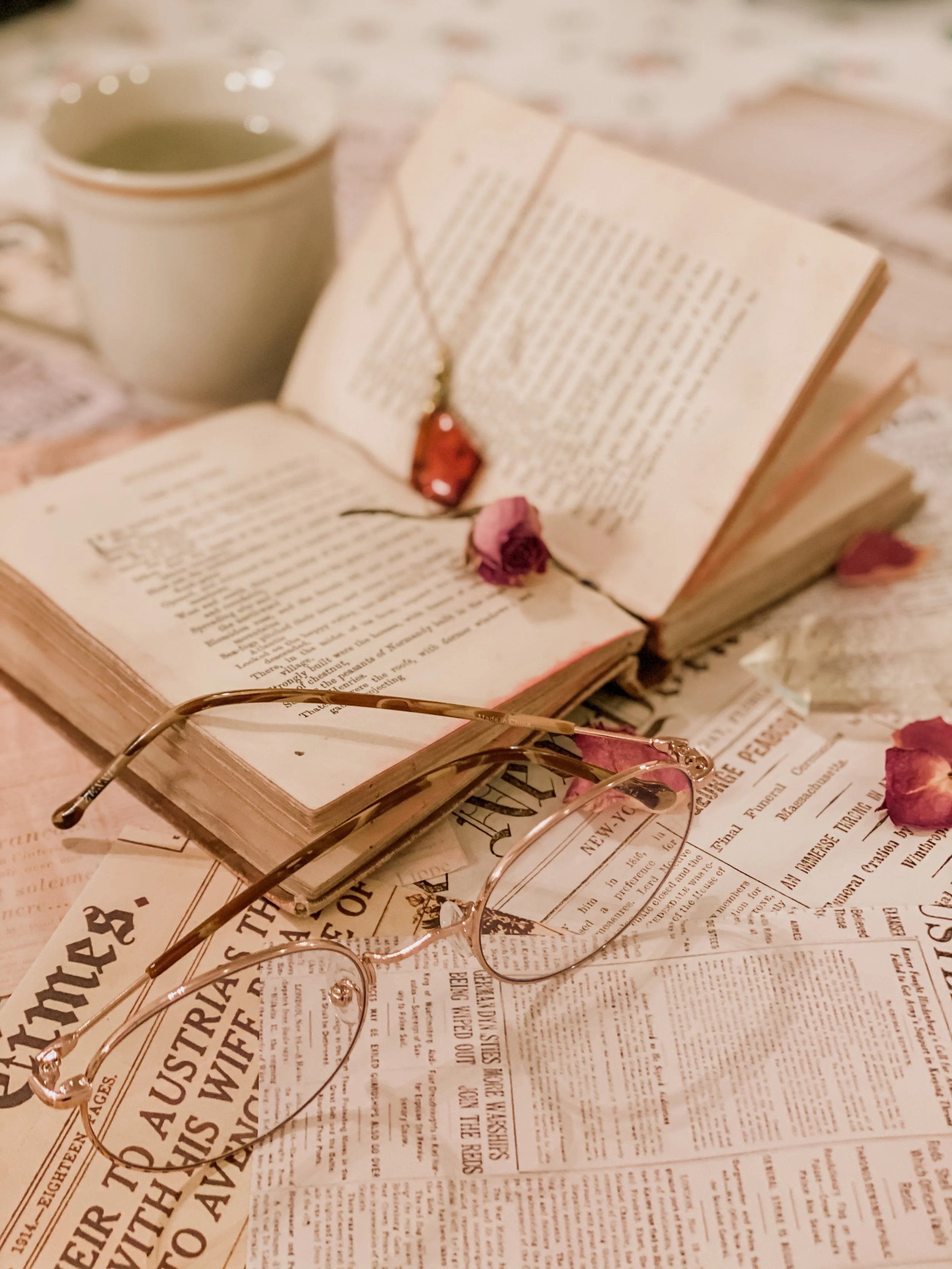The Power of Storytelling to Heal: My Personal Journey
Over the years, I’ve come to see storytelling not just as something I do, but as something that does something to me. It heals me. It guides me. It holds a mirror up to the parts of myself I’m still learning to love. Whether I’m writing novels, screenplays, or blog posts like this one, I often find that my most personal truths come through in the spaces between the words. Below, I’m answering a few questions about how storytelling has shaped my healing journey… not just creatively, but soulfully.
A cup of quiet, a tangle of pages, and a heart spilled between the lines. Healing begins where the story finds you.
The Healing Power of Storytelling in My Life
How has storytelling helped you navigate your own life challenges?
Storytelling has always been a lifeline for me… sometimes the only thread I could hold onto in the dark. It’s not just something I do, it’s something I live. Writing gives shape to the unseen. It helps me understand feelings I haven’t fully articulated yet. When life has felt overwhelming, fractured, or uncertain, the act of telling a story, especially through characters who dare to feel deeply, has given me a sense of direction and hope.
Can you share a personal story where writing or storytelling had a healing effect on you?
One particular story that had a deep healing effect on me was The Christmas Witch. What started as a fun holiday idea evolved into a powerful reflection of my own healing, loss, and rediscovery of self-worth. There were moments in the novel, and later in the script, where I felt like I was writing messages to my younger self, or maybe even my future self. Watching this story come to life on screen is like watching my own heart learn how to beat again after grief.
Using Fiction to Process Emotions
Do you find that creating fictional worlds allows you to process real emotions?
Yes, absolutely. Creating fictional worlds gives me a safe container to process very real emotions. When I build magical towns or mystical lakes or parallel timelines, I’m not escaping reality…I’m making sense of it. I let the pain and beauty coexist in my stories, because that’s what life asks us to do.
How do you translate your personal healing journey into stories that help others?
My personal healing journey weaves itself into my characters without me always realizing it at first. Brigid, for example, carries the weight of being "too much" and also "not enough"—a burden I know well. Morgan’s struggle with dreams infected by fear mirrors the way trauma can linger in our subconscious. I don’t try to write lessons into my stories; I write from lived emotion. If healing happens in the story, it’s because it was first happening in me.
The Role of Readers in the Healing Process
How have your readers responded to your work in terms of their own healing?
My readers mean more to me than I can ever express. The moments when someone reaches out to say “this helped me feel less alone” or “I cried because I saw myself in her”… those are sacred. They remind me that I’m not just writing stories; I’m creating mirrors, portals, invitations.
Have you received feedback from people who felt personally impacted by your stories?
I’ve received messages from many people who told me that Hashtag Blessed helped them ask for help and reconnect with their creativity after a long period of numbness. Others have told me Lost in Time gave them permission to grieve, to hope, to begin again. That feedback doesn’t just validate the work—it transforms it. The story continues, through them.
Writing as a Form of Self-Reflection
How do you use your writing as a mirror for self-discovery?
Writing is where I meet myself most honestly. Sometimes I’ll write a line and it stuns me—like a truth I didn’t know I was ready to admit. It’s a mirror, a journal, a prayer, a reckoning. I write to remember who I am beneath the noise of expectation and fear.
Are there characters or stories in your work that reflect parts of your own healing process?
Characters often arrive carrying pieces of my own healing. Some speak the words I never got to say. Others make the choices I wish I had made. In The Secrets of Starlight Lake, I’ve woven healing into the fabric of the plot—not as a tidy arc, but as a lived, layered process. The characters don’t just grow; they unfold. Just like I do, over and over again.
How Stories Build Empathy and Compassion
In what ways do you believe storytelling creates a shared understanding between people?
Stories soften the edges between us. They take what’s personal and make it universal. They allow us to walk in someone else’s shoes, to feel what they feel without judgment or defense. I think storytelling is one of the last forms of sacred listening we have left in this world.
How do you hope your stories foster empathy in your readers?
I hope my stories foster empathy by reminding readers that everyone has a hidden history, a quiet ache, a flicker of hope they’re protecting. I don’t write to offer answers—I write to hold space. If someone closes one of my books and feels more seen, more gentle toward themselves or someone else, then that’s the real magic. That’s why I write.
If these reflections resonate with you, I hope you’ll carry them gently into your own story, whatever chapter you’re in. Writing has been a way for me to make sense of grief, hope, memory, and transformation… and maybe, in reading these words, you’ll be reminded that your voice matters too. We’re all just trying to find the light in the dark.
With heart and ink,
Dalea
🕯️ Wander into Amberlight and beyond—sign up for updates, secrets, and the occasional enchanted surprise.


